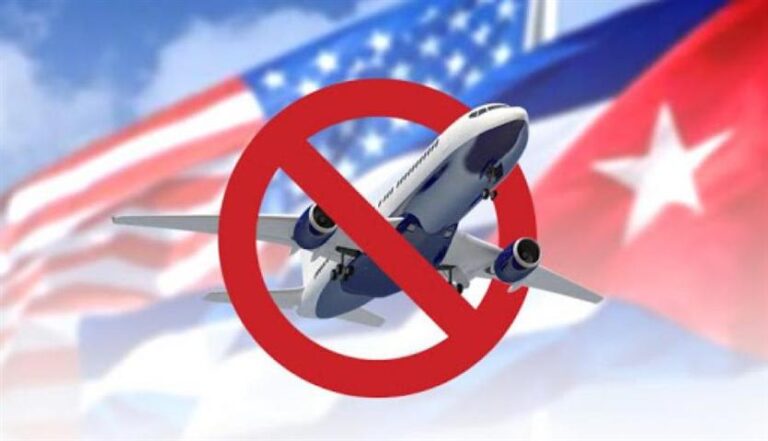Two years after the United States limited public charter flights from that country exclusively to the airport in this capital, the negative impact of that measure on Cuban families is growing.
On March 10, 2020, this limitation came into force, together with a similar one adopted by the administration of President Donald Trump in October 2019, by which commercial flights were prohibited to all cities in Cuba with the exception of Havana.
Upon entering into force, the Prime Minister of Cuba, Manuel Marrero, described the act as one more step to isolate Cuban families on both sides and a direct sanction by the empire to suffocate the Cuban economy.
The obsession with cutting off the flow of transportation between the two countries had a new chapter with the announcement in August 2020 of the suspension of private charter flights to all airports in Cuba, including Havana.
Previously, Trump had revoked the authorizations that allowed US companies to rent planes to Cuban government airlines, as well as the suspension of cruises and group educational trips.
The increase in ticket and transportation costs is one of the first impacts of this measure, which also limits the mobility of people with physical limitations, older adults and children who, if they live outside of Havana, must travel several kilometers to reach their final destinations.
The limitations imposed on air transportation by the Covid-19 pandemic had a more profound effect with regard to connections between the United States and Cuba, which was fundamentally translated into an increase in the price of tickets and a greater reduction in the number of flights.
However, the arguments put forward by the US authorities to justify their actions went so far as to state that they were acting to support the Cuban people.
With nearly two million residents and some 180 kilometers away, the United States is one of the main centers of the Cuban diaspora, however, the normal flow of travelers between the two countries was artificially interrupted on several occasions for political reasons.
This explains why in December 2015, during the process of normalizing links, an agreement was signed to re-establish direct regular flights, which served to encourage travel by US citizens to the island.
The Cuban government reiterated on several occasions its motivation to maintain a constructive relationship with nationals residing in other countries, however, in the case of the United States, family relationships are used for electoral purposes.
Added to the travel restriction was the closure of the consular services in Havana under unfounded pretexts of security at the Washington embassy in Cuba, and although the gradual reopening of these services was recently announced, a date has not yet been defined and they will be held very limited way.
For this reason, most Cubans will still have to travel to a third country to carry out their visa procedures, with the consequent increase in economic costs.
Washington also does not comply with the 1984 and 1994 immigration agreements to grant 20,000 annual visas.
The politicization of this issue, in which the Cuban Adjustment Act also has its weight, has led in recent years to the irregular migration of Cubans to the United States.
The impact on families and the appearance of human trafficking networks associated with this situation reinforce the commitment of the island’s authorities to orderly, legal and safe migration from Cuba.

